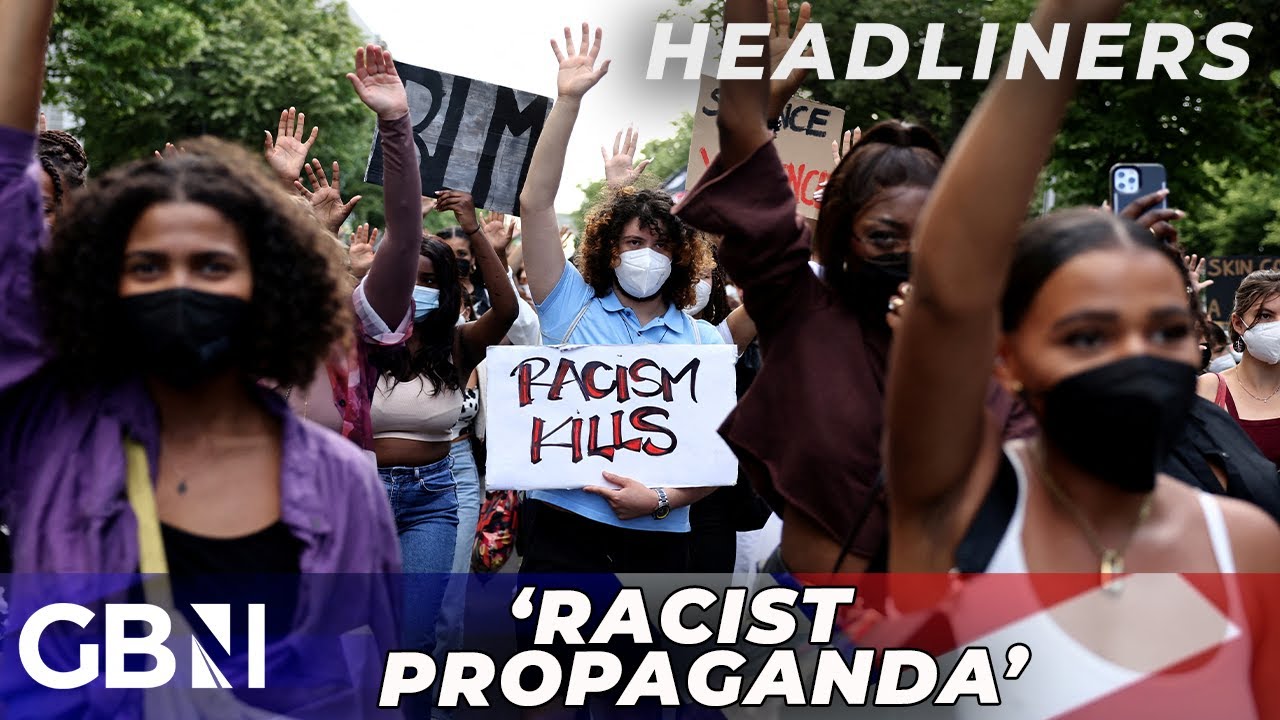The new demand of the black lives matter movement is to defund the police. For many this is an extreme slogan. So what does it mean? Where does it come from? And – here in the UK – what exactly would be the impact of “defunding the police”? (Subscribe: https://bit.ly/C4_News_Subscribe)
To understand the campaign to defund, you need to start in the US – the country with the highest incarceration rate in the world.
Over the past four decades America has almost tripled the amount it spends on policing from $42 billion in 1977 to almost $115 billion, 40 years later in 2017.
Over the past 30 years, police costs have skyrocketed and so have the number of people incarcerated.
Meanwhile, the amount of violent crime has fallen dramatically, after reaching a peak in the early 90s.
So now, those calling for the police to be defunded, say the money should be put into these areas instead – to stop the causes of crime in the first place. Rather than spending the money on an increasingly militarised force, with state of the art kit.
Since 1980 the prison population has grown from around 300,000 to over 2.3 million today.
The incarceration rate has declined a bit in the last decade, but the numbers are still incredibly high. Out of every 100,000 people in America, 716 of them are behind bars. And 1 in 5 of these were for drug offences.
What’s telling is the racial makeup of the prison population.
White Americans make up 64% of America but just 39% of prisoners.
African-Americans meanwhile, make up 13% of the country overall – but they make up a staggering 40% of the prison population.
These problems – of course – go back centuries in the States. But what’s new this time is social media.
Videos of police killings can now go around the world in seconds and as more people become enraged by these videos, many Americans are asking why they are paying billions of dollars in taxes – to fund police forces who kill civilians?
Should that money be better spent elsewhere?
Defunding the police has become the call of black lives matter. It can be heard across America, from Minneapolis to Miami.
But the same message has also spread to the UK. And now, activists are calling to defund the police force here as well.
But can the same argument really be made? After all, things like police shootings are not nearly as common here.
Policing in the UK is made up of dozens of different forces – the largest being the Metropolitan Police, in London, with a budget of about £2.5 billion.
Across England and Wales, the total spent is about £14 billion. That’s actually quite small, compared to the UK government’s entire budget.
Take the National Health Service, for instance, that has a far larger budget – of around £153bn every year.
Police numbers have become an increasingly political issue. And in contrast to America police officers have found themselves a casualty of austerity. In fact, England and Wales have lost around 20,000 police officers in the last ten years.
In London, official statistics show that not only are black people more likely to be stopped by police. It’s also more likely the searches are completely unjustified – in the sense that the police don’t actually find anything incriminating when the search you.
Despite making up just 14% of the overall population, Black and brown men and women make up a quarter of the prison population – and that figure rises to 40% when you look at young people in custody.
Your sympathy for defunding the police will almost certainly rest on your relationship with them. For most of the country who are unlikely to be disproportionately stopped by the police or arrested there is significant support for more bobbies on the beat.
Even within communities with a more adversarial relationship, support for defunding the police is far from universal.
But in the UK, the idea of defunding the police is not just about tackling racism – although that’s obviously a big part of it. But it’s also creating a system that helps and supports everyone in a better way.
Because increasingly, the police are getting involved in complicated social issues – and mental health issues – which might be better dealt with by other people.
While many support services have had their funding cut, it’s often been the police who have stepped in. Sometimes not as well trained at dealing with sensitive personal situations.
So, many people calling to “defund the police” are actually calling for radical reforms to redress the balance – rather than mass defunding or abolition, as others have demanded.
For those demanding defunding this is less about abolition and more about remaking the relationship with the state. It’s about asking who are these institutions really for? What inequalities do they enhance? And is there a better way to arrange them?
——-
#BlackLivesMatter #BLM #DefundThePolice #DefundPolice
